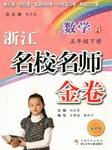题目内容
.
Never before______ so highly successful in his attempts to forecast the weather accurately on a small scale.
A.man has been B.man is C.has man been D.will be man
C

 浙江名校名师金卷系列答案
浙江名校名师金卷系列答案It seems that the Englishmen just can’t live without sports of some kind.【小题1】 ____ Whenever you go in this country, you will see both children and grown-ups knocking a ball about with a stick or something, as if in Britain men shall always remain boys and women girls! Still, it can never be bad to get exercise, can it?
Taking all amateur (业余的) and professional sports in Britain into consideration, there can be no doubt that football is at the top of the list.【小题2】 ___. The game originated (起源于) in Britain and was played in he Middle Ages or even earlier, though as an originated game, or “association football”, it dates only from the beginning of the 19th century.
【小题3】___. It is a kind of football played by two teams of fifteen players. In rugby, an oval-shaped ball is used which can be handled as well as kicked. It is a pretty rough game.
In summer, cricket is the most popular sport. In fact, is has sometimes been called the English national game. Most foreigners find the game rather slow or even boring, but it enjoys great popularity among the British.
【小题4】____. It was introduced into England from France in the 15th century, but it was from England that it spread to practically every country in the world.
Table tennis, or ping-pong, surely is not played on a great scale as it is in China or Japan. 【小题5】_____.Horse-back riding, swimming, rowing and golf all attract a lot of people.
| A.It is called soccer in the United States. |
| B.The next is rugby, which is called “football” in the United States. |
| C.Tennis rated high on the list, too. |
| D.Basketball and volleyball were introduced into Britain during the late 19th century from America and are gaining popularity. |
F.Not everyone likes ball games.
G. famous French humorist once said that this is because the English insist on behaving like children all their lives.